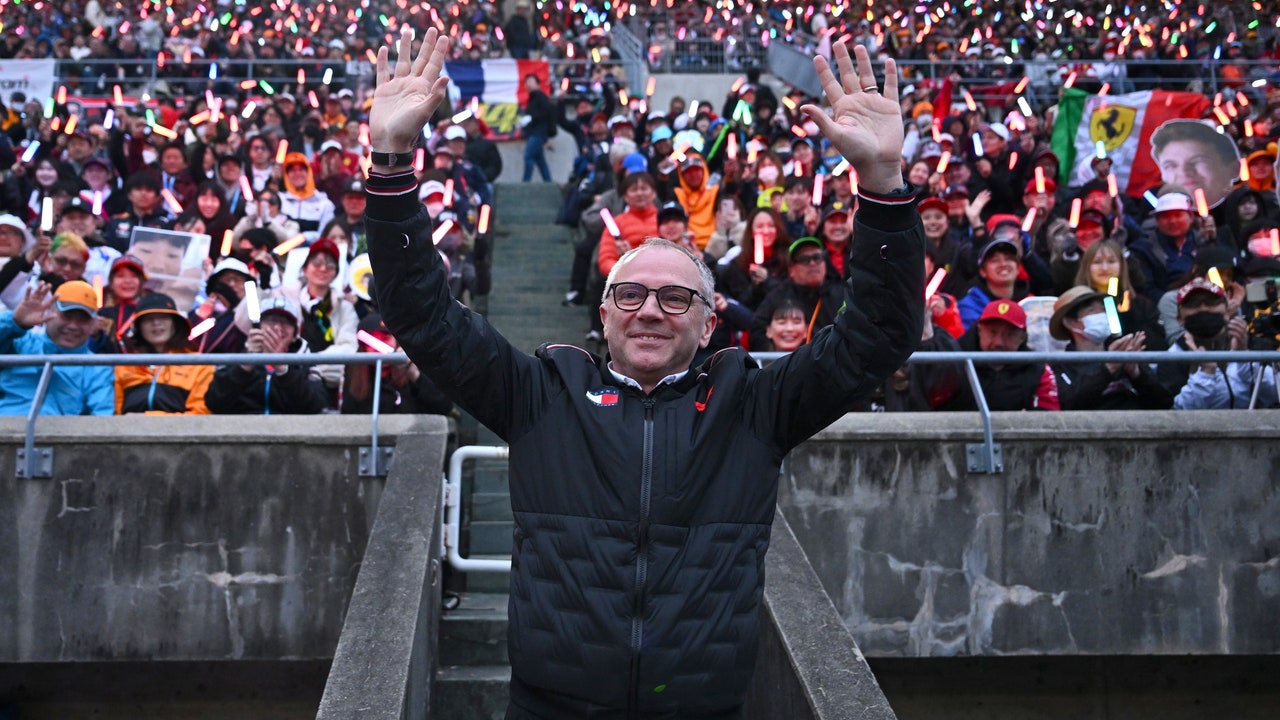“Don’t laugh,” says Stefano Domenicali, “but I don’t have a car. I don’t drive. People don’t believe me, but it’s true.” It might seem a strange confession for the CEO of Formula 1, but Domenicali has been busy; there isn’t much time for Sunday spins when you’re steering the buzziest sport on the planet.
Since he took the top job in 2021, F1 has exploded. Once dominated by an older male audience – in 2017, just eight per cent of fans were women – it now has a rapidly growing fanbase of 16–24 year olds, and close to an even gender split. Last year alone, F1 says, 90 million new fans watched the sport – boosting the total to more than 800 million people.
“In the past five years, we’ve completely changed the way we communicate to fans,” says Domenicali. Central to that has been the sport’s full-bodied commitment to thrilling, cinematic storytelling, through projects like the hit Netflix docuseries Drive To Survive. “The need to be always on ‘record’ mode, to be in a situation where you have to anticipate things in order to be relevant, is really the biggest thing that I’m proud of.”
Courtesy of Alamy
We meet in April, the week after the Japanese Grand Prix. The 59-year-old returned from Suzuka yesterday, and has done a full day at F1’s London headquarters before he flies to Bahrain for the next race. Domenicali is his usual chirpy self, grinning the same way he would at Lando Norris after a P1 finish. Apparently, jet lag doesn’t affect him. “It’s quite an active schedule, but it’s OK. We are young inside!” he says with a smile.
The F1 calendar now has 24 races per season, and spans five continents. Just as teams and drivers are always seeking quicker lap times, Domenicali is target-focused – constantly pushing for increased exposure, more lucrative brand partnerships, and improved fan satisfaction. “I hear people saying 24 races is too many but I say, ‘Wait a minute, how many games are they doing in football?’ Every young person has a problem of not stopping their finger moving up and down [their phones], so you need to create content,” he says.
Formula 1’s success has turned a sport already blessed with a who’s who of luxury brand partners into a commercial behemoth. Domenicali has been at the heart of this, not least a 10-year deal with LVMH, which started this season and is estimated to be worth $1 billion. “F1 is of course about racing,” he says, “but it’s now more than that. Not many sports are truly global – but we are. We cut into a lot of verticals: lifestyle, travel, fashion, technology and innovation.”
